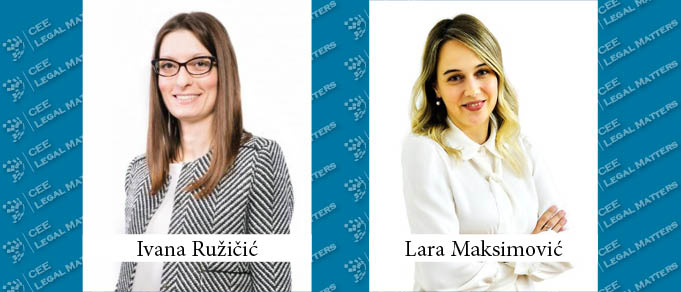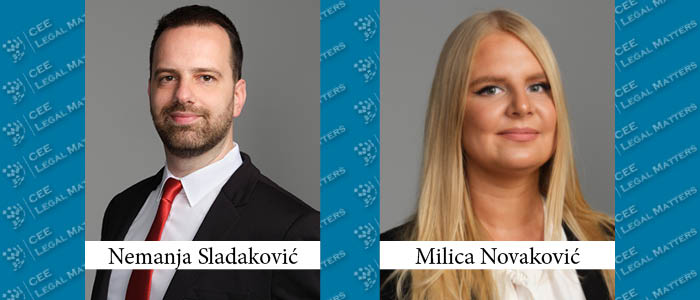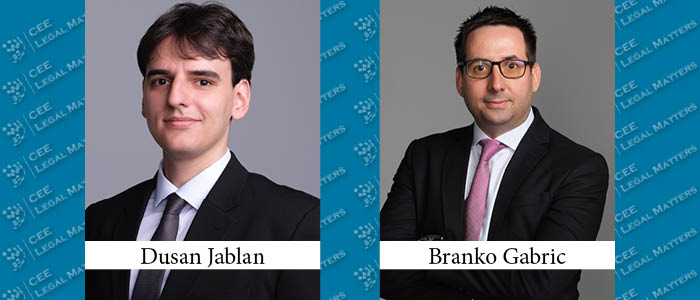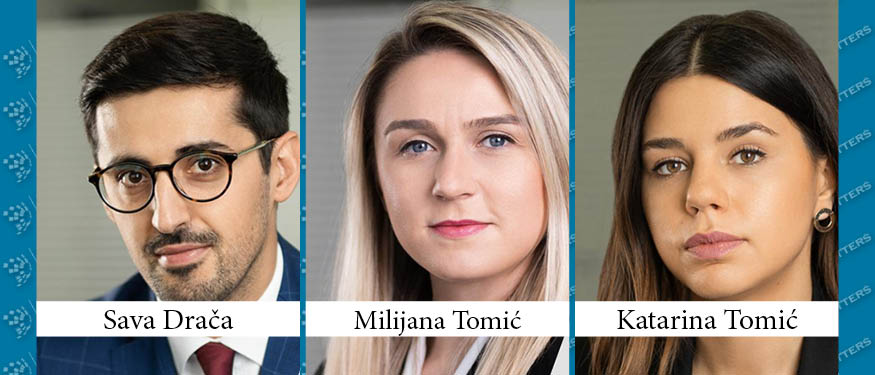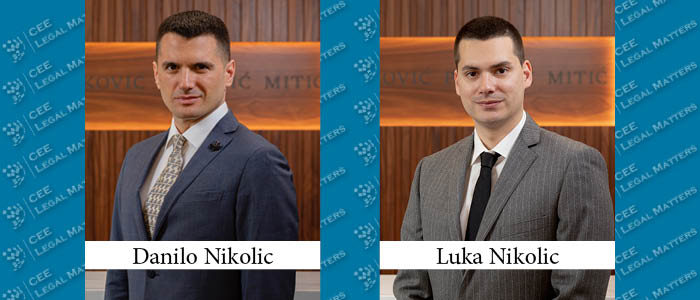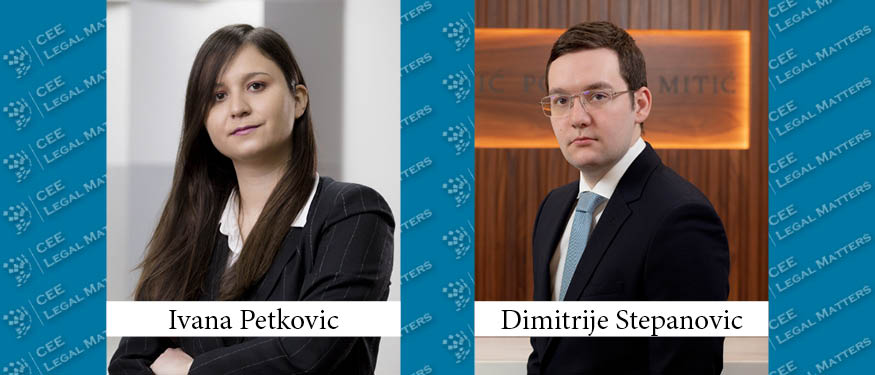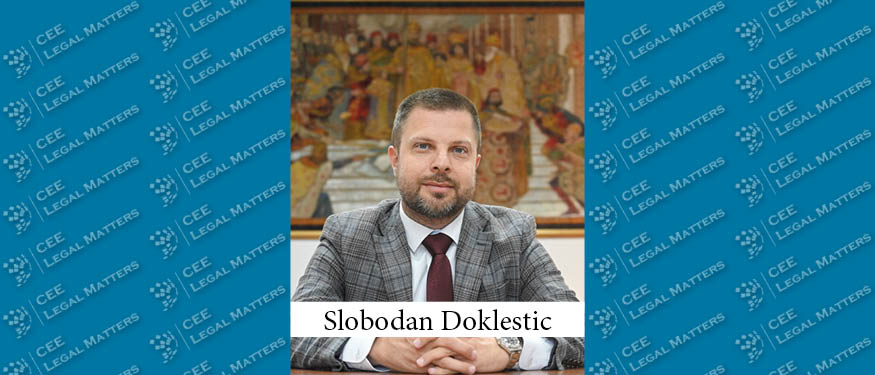On July 10, 2023, the European Commission adopted a new mechanism for personal data transfer between the EU and the US – the Decision no. C (2023) 4745 (“the Decision”), which stipulates that the US provide adequate and appropriate level of protection, i.e., that corresponds to the one existing in the EU in terms of personal data transferred from the EU to the US companies, without the obligation to undertake any further protective measures. The Decision entered into force and started to apply on the day of its adoption.
Schoenherr and DLA Piper Advise on GfK's Sale of European Consumer Panel Business to YouGov
Schoenherr, working alongside Jones Day, has advised GfK SE on the EUR 315 million sale of its European Consumer Panel business to YouGov. DLA Piper advised YouGov.
JPM & Partners Successful for Colas Rail in Arbitration
JPM & Partners has successfully represented the interests of Colas Rail in an arbitration proceeding against a subcontractor and its bank.
BAT Appoints Zora Ilic as Head of Legal and External Affairs for Adria Cluster.
British American Tobacco has appointed Zora Ilic as its Head of Legal and External Affairs for Adria Cluster.
Advancing Sustainability and Circular Economy: New European Regulation on Batteries and Waste Batteries
On July 10, 2023, the Council of the European Union (“Council”) officially adopted the Regulation of the European Parliament and of the Council concerning batteries and waste batteries (“Regulation”). This Regulation covers the entire battery life cycle, from production to reuse and recycling, aiming explicitly at safety, sustainability, and enhancing competitiveness.
EU’s Foreign Subsidies Regulation Starts to Apply
The Foreign Subsidies Regulation (FSR), one of the EU’s latest state aid instruments, entered into force on January 12, 2023. Now, after six months, it starts to apply. This regulation establishes rules to govern foreign subsidies that could distort the EU’s internal market. It empowers the European Commission (“Commission”) to investigate financial contributions provided by non-EU countries to companies operating in the EU. If these contributions are found to be distortive subsidies, the Commission can enforce corrective measures to remedy these effects.
The Court of Justice of the EU: Competition Authorities May Examine Infringement of Personal Data in the Context of Monopoly Position of the Controller
In one of our previous texts (available here) we wrote about the connection between the protection of competition and protection of personal data, namely whether competition authorities may consider infringements of personal data in their investigations.
Online Portal for Freelancers in Serbia is Launched
On 30 June 2023, the web portal for freelancers operated by the Tax Administration was launched.
The Legality of SKY ECC Evidence: A Controversy Over Privacy and Fair Trials
After the roundtable discussion organized by the Lawyer's Academy of the Serbian Bar Association on the topic of SKY ECC communication as evidence in criminal proceedings on June 29, 2023, we summarize the key conclusions on an extremely relevant issue - SKY ECC hacking.
Enhancing Cross-border Cooperation: A Proposed Regulation to Strengthen Data Protection Enforcement under the GDPR
On July 4, the EU Commission introduced a new Procedural Regulation aimed at enhancing cooperation among data protection authorities (“DPAs“) when enforcing the General Data Protection Regulation (“GDPR“) in cross-border cases.
Data Protection and Dominant Market Positions: Court Ruling Explores Gdpr Compliance
On July 4, 2023, the Court of Justice of the European Union (“CJEU“) pronounced a momentous judgment in Meta Platforms and Others.
New General Product Safety Regulation of the EU Enters into Force
The new General Product Safety Regulation of the EU, which has recently entered into force, was published in the Official Journal of the EU on May 23, 2023, and it shall start to apply on December 13, 2024 (“the Regulation”).
Written Statements of Witnesses in Civil and Arbitration Proceedings
According to positive regulations in the Republic of Serbia, each party shall present the facts and propose the evidence on which it bases its request or with which it disputes the allegations and evidence of the opponent. The evidence includes all the facts relevant to making a decision. Both in civil and arbitration procedures, the most common means of evidence are documents and testimonies.
Serbia's Long Fuse: A Buzz Interview with Slobodan Doklestic of Doklestic Repic & Gajin
Despite a recent M&A slowdown, updates to the capital markets and land rights laws, renewable energy auctions, and business migration heavily impact Serbia's legal and business landscape, according to Doklestic Repic & Gajin Partner Slobodan Doklestic.
BBR Bank Appoints Cvjeticanin & Partners' Nenad Cvjeticanin as Data Representative for Serbia
The BBR Bank has appointed Cvjeticanin & Partners Partner Nenad Cvjeticanin as its data representative for Serbia.
Kinstellar Teams Up with SOG in Serbia
Kinstellar has announced it is strengthening its presence in Serbia by teaming up with the local SOG Law Firm in a strategic partnership.
Karanovic & Partners Advises Marriott International on Opening Moxy Hotel in Belgrade
Karanovic & Partners has advised Marriott International on the development and opening of its first Moxy hotel in Belgrade, Serbia.
Serbia: Financial and Banking Market Overview
Serbia’s banking sector faces another year of challenges. Global inflation in 2023, compared to the last quarter of 2022, records a slight slowdown, but one thing is indisputable – the main challenge in 2023, and not only in the banking sector, is the war in Ukraine.

